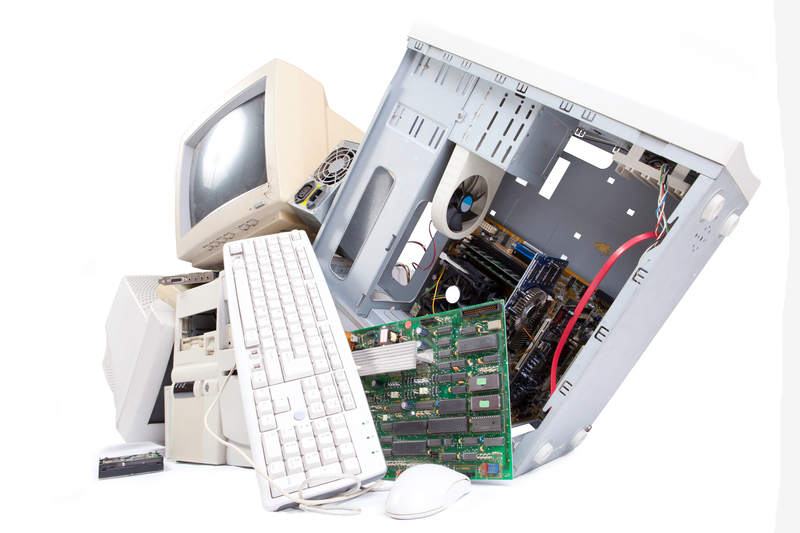Innovative Tips for Managing Bulky Waste on a Tight Budget
Managing bulky waste can be a daunting task, especially when you're working with a limited budget. Whether it's old furniture, broken appliances, mattresses, or renovation debris, disposing of large, unwanted items can strain both your wallet and your schedule. However, with some creative approaches, cost-effective solutions, and a bit of planning, you can handle bulky waste efficiently while keeping expenses in check. In this comprehensive article, we'll explore innovative ideas for managing bulky waste on a tight budget--helping households, businesses, and communities to reduce stress, save money, and minimize environmental impact.
Understanding Bulky Waste: What Qualifies?
Before diving into the best practices for budget-friendly bulky waste management, it's essential to understand what falls into this category. Bulky waste usually refers to large items that can't fit into regular curbside collection bins, such as:
- Old sofas and couches
- Broken or unwanted mattresses
- Large household appliances (fridges, washing machines, stoves)
- Wooden or metal furniture
- Construction and renovation debris
- Carpets and rugs
- Outdoor items (grills, bikes, lawn equipment)
Most local waste collection services charge extra for collecting these items due to their size and the extra labor required. That's why resourceful thinking is key to saving money.

Why Find Innovative Solutions for Bulky Waste?
Traditional methods of disposal, such as hiring a skip or paying for special pick-ups, can quickly add up. Furthermore, some landfill sites charge premium fees for bulky waste because it requires more space and handling. By seeking innovative ways to manage large waste items, you can cut costs, reduce your environmental footprint, and even support your local community.
Benefits of Cost-Effective Bulky Waste Management:
- Saves money for households, offices, and landlords
- Promotes reuse, recycling, and sustainability
- Declutters spaces efficiently and affordably
- Prevents unnecessary waste from ending up in landfills
Top Innovative, Budget-Friendly Tips for Managing Bulky Waste
Let's look at some of the most effective methods to tackle bulky waste without breaking the bank. These tips combine smart planning, do-it-yourself strategies, and creative resource utilization.
1. Plan Ahead and Maximize Waste Reduction
The best way to save money on bulky waste disposal is to generate less waste in the first place. Before you begin any clearout, renovation, or upgrade project, take a few moments to assess:
- Which items can be reused, repurposed, or repaired?
- Whether you're buying new items impulsively that may soon become waste
- If you can donate or sell anything that still has value
2. Tap into Community Freecycling and Swap Groups
One of the most successful methods for affordable bulky item disposal is to give away or swap items via community platforms. Use social media groups, community noticeboards, and dedicated websites like Freecycle, Gumtree, or Facebook Marketplace to:
- Find someone who needs your unwanted furniture or appliances
- Organize community swap days
- Offer "free for collection" listings to encourage pick-up
3. Repurpose and Upcycle Bulky Items
Before tossing that rickety wardrobe or creaky table, consider if you can transform it into something useful! Creative repurposing can turn bulky waste into art, garden planters, extra seating, or shelving. Some fun, budget-friendly upcycling ideas include:
- Turning an old door into a headboard or dining table
- Converting pallets into garden furniture or compost bins
- Painting and refurbishing furniture for resale or reuse
4. Break Down and Bundle Waste to Save on Collection Fees
Collection services often charge by size or volume. If you're paying for pick-up, disassemble bulky items as much as possible to minimize space. For example:
- Remove legs from tables and chairs
- Take apart bed frames and wardrobes
- Flatten cardboard boxes or dismantle appliances (check for hazardous parts)
5. Coordinate Bulk Waste Collections with Neighbors
If your area charges for special bulky waste pickups, organizing with neighbors can help share the cost. Arrange a street or apartment block collection, then split the bill. This cooperative effort:
- Cuts down on individual fees
- Reduces the carbon footprint of extra truck trips
- Frees up precious space for everyone
6. Leverage Council Collection Services and Special Events
Many local authorities offer occasional free or low-cost bulky waste collection days. Keep an eye on your city or council's website for event announcements, or contact your waste department directly. These services can include:
- Monthly or quarterly large item pickups
- Community "clean-up days" for town or neighborhood
- Discounted rates for seniors or low-income residents
7. Hire a Skip Share or Waste Removal Co-Op
Traditional skip hire can be costly if you only have a few items. Get innovative by:
- Sharing a skip with neighbors or friends to divide costs
- Joining a skip-share platform to match your timing with others nearby
- Exploring waste removal co-ops, where communities pool resources
8. Take Bulky Waste to the Local Recycling Centre
Transporting items yourself to a recycling center is usually the most cost-effective disposal option. Most civic amenity sites accept a wide range of large waste for free or minimal fees. For the best results:
- Borrow or rent a vehicle if you can't fit your items in your car
- Sort and separate recyclables (e.g., metal, wood, electronics)
- Check online for acceptable items and opening hours
9. Sell What You Can
It might sound surprising, but many people are willing to pay for old or unwanted bulky items, especially if they're handy with a toolbox or enjoy flipping furniture. If your items are in usable condition, try:
- Listing on eBay, Facebook Marketplace, or Craigslist
- Hosting a garage or yard sale
- Partnering with local antique dealers or renovation specialists
10. Partner with Local Charities and Nonprofits
Many nonprofits accept donations of furniture, electronics, and household items to furnish shelters, support low-income families, or resell at thrift stores. Some even offer free collection services for large donations. Before hauling off your sofa or fridge, contact:
- Local shelters or transition homes
- Charity furniture warehouses
- Community reuse centers
Managing Bulky Waste: Dos and Don'ts
Essential Dos
- Always check if items can be recycled or donated before disposal
- Research local regulations to avoid fines for illegal dumping
- Prepare and separate items before collection
Big Don'ts
- Never leave bulky waste on sidewalks or in illegal dumps
- Avoid breaking electronics or appliances unless qualified (hazards)
- Don't pay inflated private collection fees without exploring community or charity options first
Creative Case Studies: Real-World Success Stories
Community Bulk Waste Drive in Action
A neighborhood in London managed to clear dozens of unwanted couches, beds, and garden furniture by organizing an annual bulk waste drive. Residents collaborated to hire a single skip, arranged volunteer pick-ups for elderly neighbors, and even hosted a swap event. The result? Clean streets, savings for all, and several items diverted for reuse!
DIY Upcycling Club Turns Trash Into Treasure
A group of students turned discarded doors and pallets into stylish community garden benches. By collecting and repurposing bulky waste themselves, they furnished a local park and saved hundreds in costs, while promoting eco-friendly creativity.

Frequently Asked Questions About Budget Bulky Waste Disposal
Q: What counts as bulky waste and is there a specific way to dispose of it?A: Bulky waste generally includes any household item too large for regular waste collection, such as mattresses, sofas, fridges, and construction debris. Disposal methods vary by community but often include drop-off recycling centers, scheduled council pickups, or charity donations. Q: Is there a free way to get rid of my old furniture?
A: Yes! Many charities and social enterprises offer free collection of reusable furniture. You can also post online or give away items through community groups. Q: I have no transport--how can I manage bulky waste cheaply?
A: Arrange curbside pickups when your council offers them, partner with neighbors to share removal costs, or seek nonprofits that offer free pickup.
Conclusion: Managing Bulky Waste on a Budget Is Possible!
Whether you're clearing out your attic, tackling a renovation, or dealing with a move, bulky waste management doesn't have to drain your finances or harm the environment. By planning wisely, collaborating with your community, and taking advantage of creative disposal and reuse opportunities, you can get rid of large unwanted items in a responsible, cost-effective way.
Remember, every sofa, fridge, or broken chair kept out of landfill saves resources and money. So, embrace these innovative tips for managing bulky waste on a tight budget, inspire your neighbors, and make a positive impact in your own home and beyond!
If you enjoyed these tips for handling large waste items, share this article and help others save money, space, and the planet--one bulky item at a time!